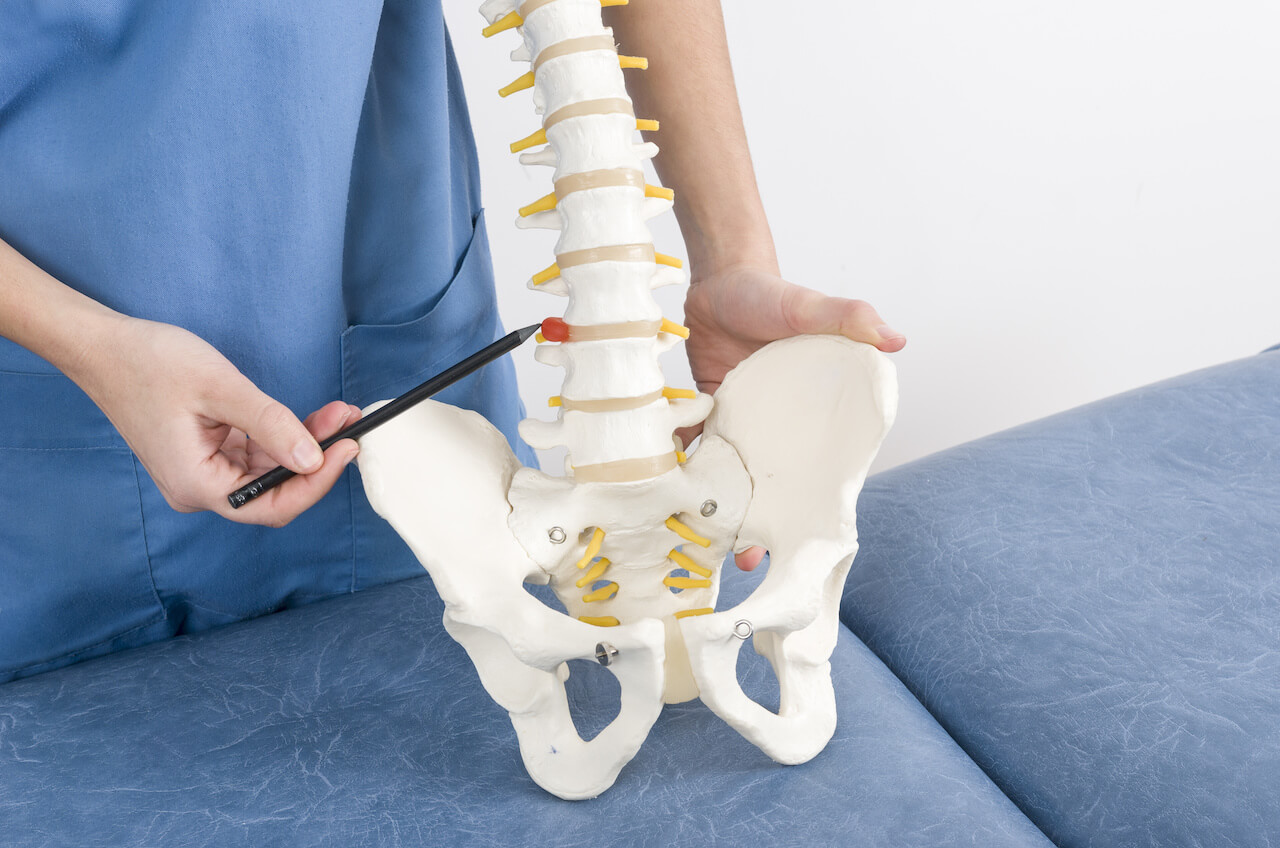
Herniated discs are a common condition that impacts the spine. A herniated disc develops when the soft, gel-like core of a spinal disc protrudes through a tear in the disc’s outer layer. This can cause a variety of symptoms, ranging from minor discomfort to significant pain and a failure to move. This article will explore eight important facts about herniated discs that everyone should know.
1. Herniated discs are most common in the lower back
Herniated discs can develop all over the spine, but they are most common in the lower back (lumbar spine) and neck (cervical spine). This is due to the fact that the vertebrae in these regions are exposed to the most stress and tension as a result of movement and posture. Lower back herniated discs can cause pain and numbness in the legs and feet, whereas cervical herniated discs can cause pain and stiffness in the arms and hands.
2. Herniated discs can be caused by injury or degeneration
Herniated discs can occur due to various factors, including injury, degeneration, and natural aging. A herniated disc can develop as a result of a spinal injury, such as a fall or car accident. Degeneration of the vertebrae can also weaken the outer layer of the disc, making it more prone to herniation. In addition, the vertebrae in our spine lose moisture and flexibility as we age, which can lead to herniation.
3. Many people have herniated discs without any symptoms
It is estimated that up to 50% of people over the age of 30 have herniated discs, yet many of them have no symptoms. This is due to the fact that the herniated disc may not be pressing on any nerves or triggering inflammation. If a herniated disc pinches a nerve, it can cause pain, numbness, and weakness in the affected area.
4. A herniated disc can heal on its own
In some cases, a herniated disc can recover on its own without the need for medical treatment. This is due to the body’s capacity to reabsorb herniated material over time. However, this process can take months or even years, and there is no assurance that the disc will recover completely without treatment.
5. Conservative treatments can be effective in relieving symptoms
Conservative treatments such as relaxation, physical therapy, and pain medication can be helpful for many people with herniated discs. Physical therapy can help to strengthen the muscles surrounding the affected area, providing support and relieving pain. Pain medicine can help alleviate pain associated with a herniated disc, but it should be used with caution and under the supervision of a doctor.
6. Surgery may be necessary in severe cases
Spine surgery may sometimes be required to treat a herniated disc. This is usually discussed only when conservative treatments have failed or when the herniated disc is causing serious symptoms such as loss of bladder or bowel control. Herniated disc surgery may include removing the herniated material or fusing two vertebrae together to support the spine.
7. Lifestyle changes can help prevent herniated discs
It is possible to prevent herniated discs by making a number of lifestyle changes. Maintaining proper sitting and standing posture, avoiding heavy lifting and constant bending, and engaging in physical activity can help to keep the spine healthy and minimize the risk of herniation. A healthy diet and enough sleep can also help with general spinal health.
8. Treatment for a herniated disc should be personalized
Lastly, keep in mind that herniated disc treatment should be customized to each person. There is no one-size-fits-all method to addressing a herniated disc because the degree of the herniation and the individual’s general health and lifestyle factors will influence the most appropriate treatment. Teaming up with a healthcare provider to create a treatment plan that meets your particular requirements and goals is essential.
